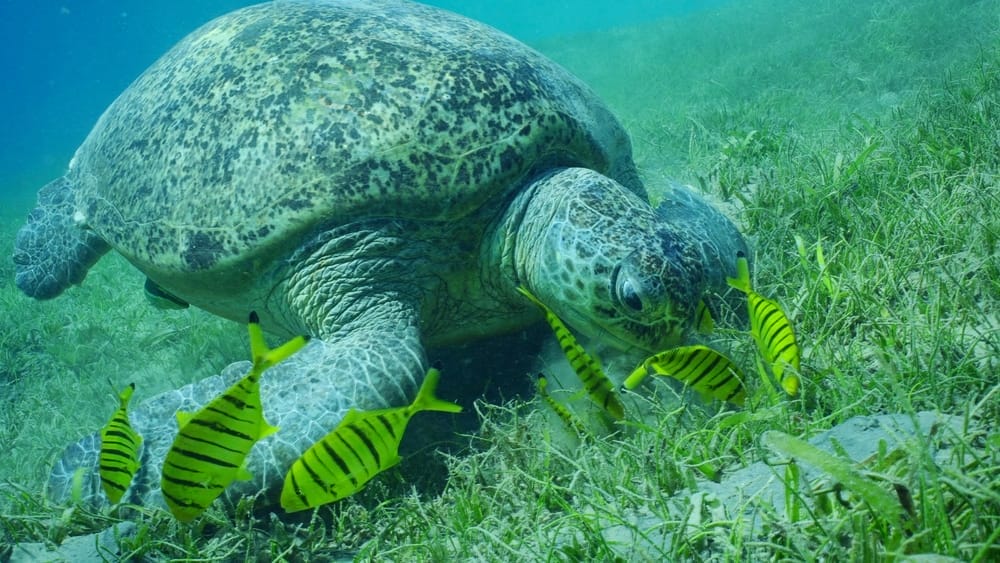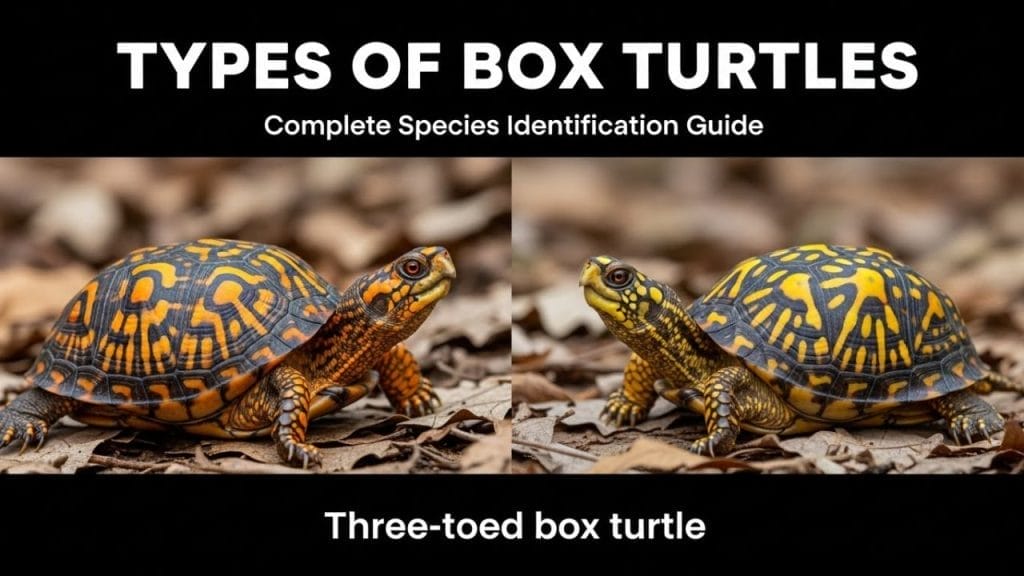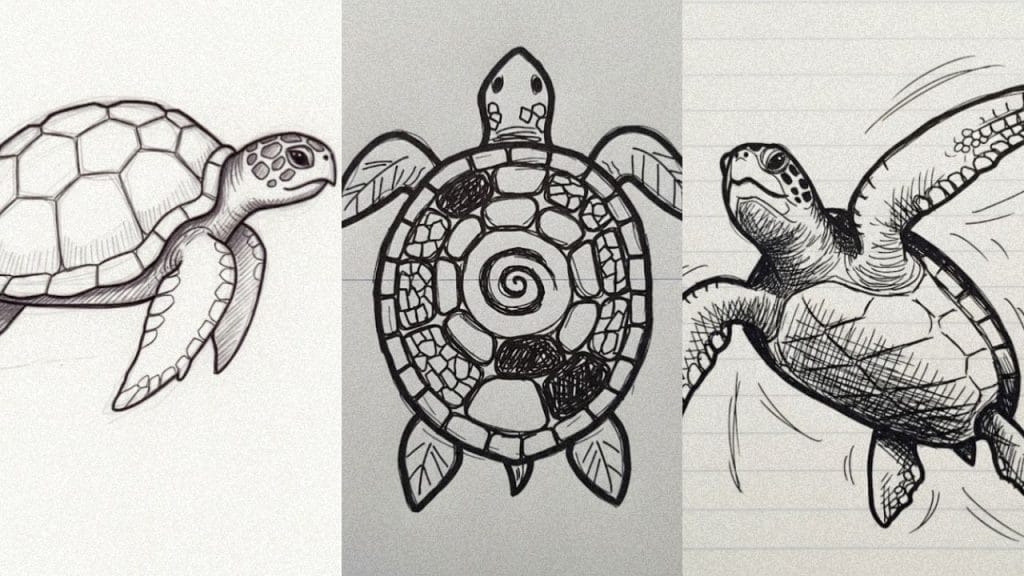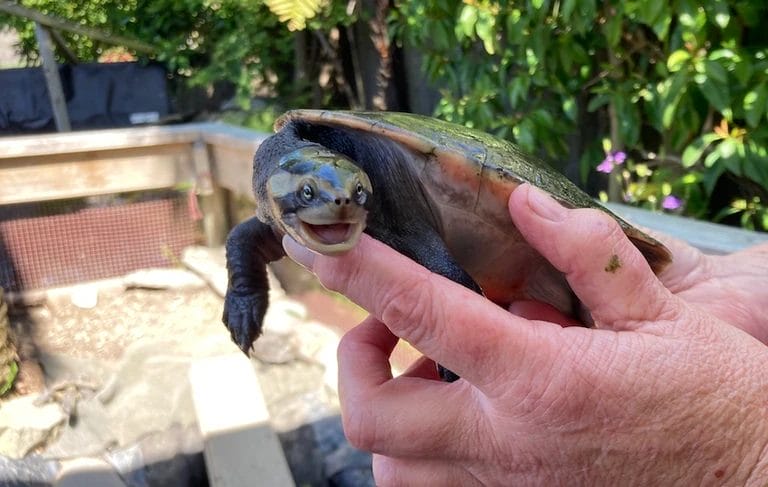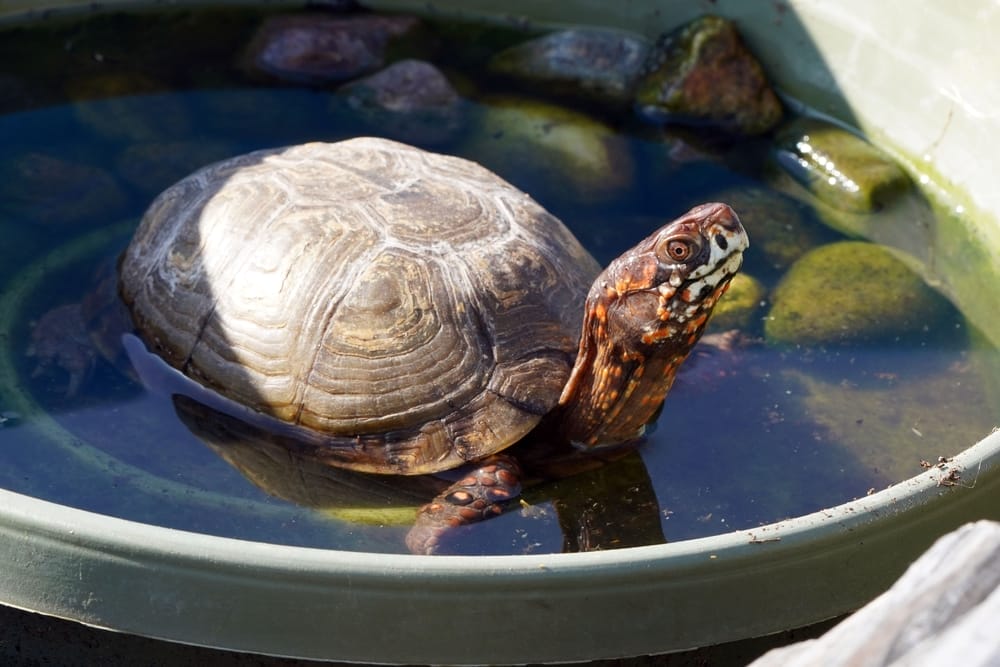Why Turtles Leave Their Mouths Open?
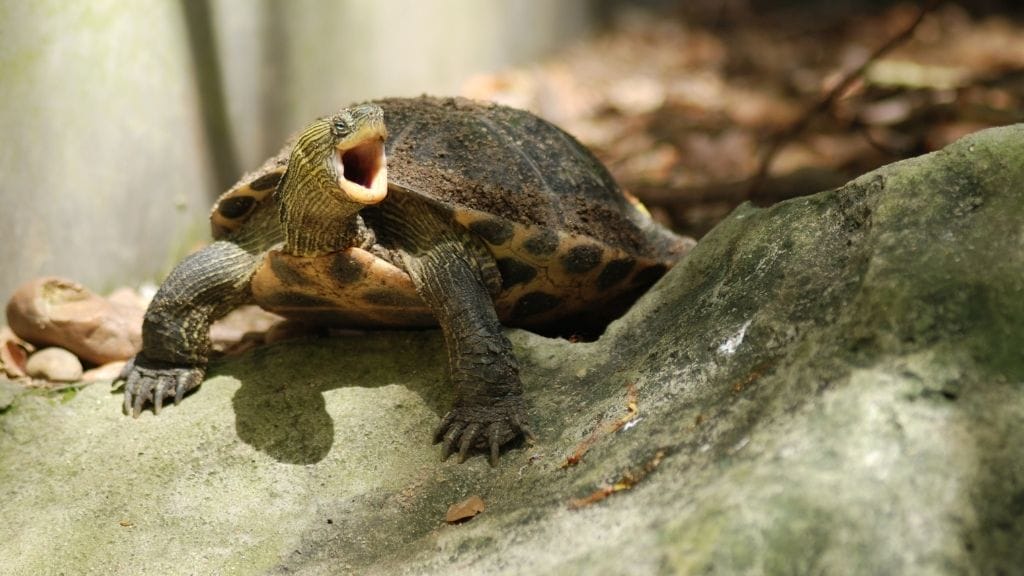
This post was created with help from AI tools and carefully reviewed by a human (Muntaseer Rahman). For more on how we use AI on this site, check out our Editorial Policy.
My sister called me last week, all worried. Her newly bought pet turtle kept its mouth open from time to time. So, she wanted to know if anything was wrong with her turtle. I really appreciate these concerns of the new turtle keepers, and I know many of you have the same question in mind. So, here I address it.
Why do turtles leave their mouths open? There can be several reasons:
- Eating
- Smelling
- Hunger
- Yawning
- Aggression
- Miserable living arrangements
- Respiratory infection
- Pneumonia
So, is there something to worry about? Yes and no. Find out the detailed answer in the following article.
Why Turtles Leave Their Mouths Open?
Turtles do strange things! Yes, I mean it. These innocent reptiles have weird natures.
As for a newbie, these behaviors might seem odd, and he would think the pet is sick. But let me assure you. In most cases, your turtle is just doing his daily activities.
However, you can not ignore the possibility of your pet being sick and behaving abnormally. Hence you should monitor your turtles more often and get familiar with their habits.
Now, the beginners often get panicked watching the turtles leave their mouths open. Such behavior can indicate both positive and negative things.
Here are the probable reasons why turtles leave their mouths open,
- Eating
- Smelling
- Hunger
- Yawning
- Aggression
- Miserable living arrangements
- Respiratory infection
- Pneumonia
1. Eating – Your Turtle Is Enjoying Snacks
Can you tell me exactly when your turtle opens its mouth more often? If it is during feeding, then worry no more. The chances are your turtle is enjoying its food.
Experts have observed that turtles are more likely to open and close their mouths more frequently during mealtime. They will also do the act while drinking water.
Now, turtles are curious by nature and also opportunistic feeders. So, the creatures might eat the food scraps or aquatic plant leaves underwater from time to time. As per the requirement, they will open their mouths.
2. Smelling – How Do Turtles Smell?
While on the land, turtles breathe air and replenish their lungs. But when they are underwater, they exchange air via their cloaca or blood vessel. Now a question arises, how do these turtles manage to smell in the water?
Many professionals believe that the turtles pick up the scents by opening their mouths. Scientists claim that turtles have bumps under the chins called barbels. These muscles have nerves for smelling odor.
Hence, if your turtle opens its mouth occasionally, it might be trying to taste and smell something underwater.
Interesting Fact: The female sea turtles release pheromone hormones to attract the males during the breeding season. Adult males pick up the scent and rush to the partner for mating.
3. Hunger – Your Turtle Is Begging For Food
Your turtle loooves food. You might already know that turtles often overeat because of their wild instinct.
Turtles do not get their meals served on a golden platter while in the wild. They fight for food and survive. So, whenever these creatures find a food source, they feast on it.
Now, the pet turtles get to eat regularly. Still, they sometimes overeat thinking about the future.
My pet turtles know my presence very well. Whenever I am near the tank, they will come up and open their mouths as a gesture of begging for food. They often make a clicking noise during the process.
Are you wondering whether turtles can make sounds or not? Read the meaning of different turtle noises.
However, it is not always necessary that your turtle is pretending to be hungry. Sometimes, turtles come to the surface and open their mouths. It is their way of letting the owners know that mealtime is here.
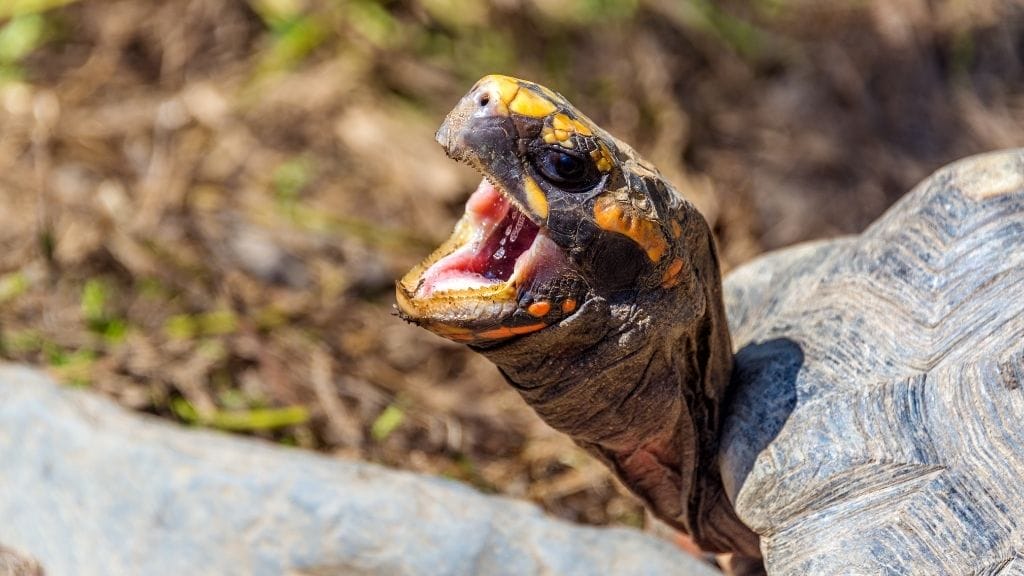
4. Yawning – Do Turtles Yawn?
Yeah, you have read it right. Your little turtles yawn very often. You will notice these creatures stretching mouth muscles and intaking more oxygens in water and land.
We, humans, yawn when we feel tired, and our brains do not get sufficient oxygen. The same thing happens for the turtles. They will gap to intake oxygen or show fatigue. However, sometimes, yawning can indicate a more severe issue, like a respiratory infection.
Why Do Turtles Yawn?
The potential causes that justify a turtle’s yawning are,
- Intaking more oxygen
- Regulating body temperature
- Stretching mouth
- Indicating mouth injury
- Respiratory illness
Intaking More Oxygen:
Gapping the mouth allows a turtle to welcome more oxygen into its lung. When the turtle’s blood receives more oxygen, the carbon dioxide leaves its body. In a sense, yawning helps a turtle breathe better.
Regulating Body Temperature:
Scientists have linked the yawning of turtles to body temperature regulation. They believe that the extra oxygen flowing in the body cools the bloodstream. Hence, the turtles can release body heat in a hot environment.
Stretching Mouth:
Gapping mouths can be a form of exercise for the turtles. In the wild, turtles prey using their sharp jaws and extended necks. Stretching the mouth or yawning helps these creatures gain flexibility while hunting. Captive turtles also practice this behavior because of the inheritance.
Indicating Mouth Injury:
Infection in the mouth often leads to mouth rot or other diseases. It is often seen that a sick turtle yawns very often. The pet might do it to relieve the pain.
Respiratory Infection:
If your turtle yawns more than usual, there is something wrong with it. Generally, frequent yawning with puffy eyes, nasal discharge, lethargy indicates respiratory illness. If your turtle has any of these symptoms, contact a vet immediately.
5. Aggression
Turtles are timid creatures. But do not expect them to behave that way always. If you disturb the pet or do something to stress the turtle, it will act aggressively towards you. An open mouth with a low hissing sound means that your turtle is angry.
In the wild, turtles practice such habits to intimidate the predators. These creatures might behave this way if you disturb the turtle. The best way to cool down the pets is to leave them alone for a moment.
6. Miserable Living Arrangements
Professionals believe that turtles leaving their mouths open is often a sign of miserable living conditions. It can be any mismanagement that instigates this behavior in a turtle. Such as,
- Congested tank
- No basking dock
- Low-quality lighting arrangement
- No filtration system
- The improper heating arrangement, etc.
7. Respiratory Infection
The scariest thing that makes a turtle leave its mouth open is a respiratory illness. It is a severe condition for turtles and not totally curable. Reptiles with respiratory infections live with permanent damage for the rest of their life.
Bacterial attack on the lung is responsible for respiratory illness in turtles. Treating the turtle at an early stage causes less damage to its health.
Some other symptoms of respiratory illness are keeping the mouth open for longer, lethargy, puffy eyes, etc.
8. Pneumonia
What if the respiratory infection in your turtle goes untreated? It takes a chronic form, and the turtle suffers from pneumonia. Turtles floating sideways and having trouble breathing are two signs of this disease. An emergency medical care is needed if you doubt that your turtle has pneumonia.
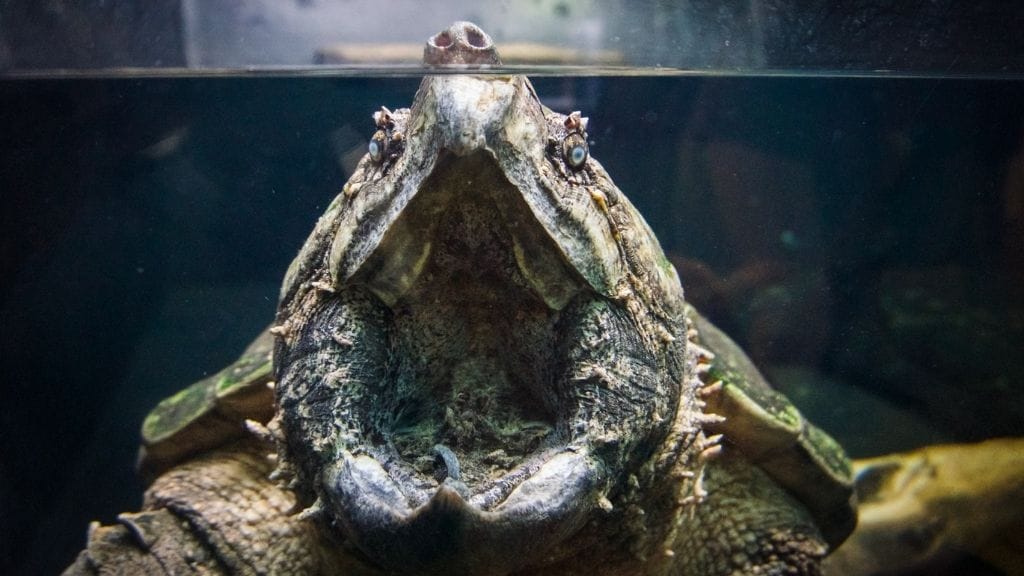
What To Do If Your Turtle Leaves Its Mouth Open?
Determining the exact reason why your turtle leaves its mouth open can be challenging for beginners. But you can use some tricks to explore the reason behind such behavior.
The only thing you should do first is to keep a journal. Track down when your turtle opens its mouth and any other abnormal behavior it does. Notice if your turtle keeps its mouth open in a dirty environment or only during mealtime. Observing the habits will help you find a pattern in the turtle’s behavior and determine the cause why it leaves its mouth open.
Now that you know what causes your turtle to keep the mouth open, solve it. Here are the steps you can try,
- Double-check your habitat setups. You have to make sure the water heater, UV light, heating lamp, and water filter is working right. Also, if the dock seems congested for your turtle, provide a bigger one.
- If it is a dirty enclosure, follow the proper guidelines to clean it. The general rule is to replace 25% of the tank water every week and perform a thorough cleaning at least once a month. Dirty water can cause shell rot and many other issues. Read this article to get ideas on fixing cloudy turtle tank water.
- If you think the turtle is sick, place it under the lamp. Make sure the turtle is warm and has access to adequate light. Experts often advise using antibacterial in the water to kill the existing harmful bacteria. Next, make an appointment with the vet.
This Hilarious Turtle Book Might Know Your Pet Better Than You Do
Let’s be real—most turtle care guides feel like reading a textbook written by a sleep-deprived zookeeper.
This one’s not that.
Told from the snarky point of view of a grumpy, judgmental turtle, 21 Turtle Truths You’ll Never Read in a Care Guide is packed with sarcasm, sass, and surprisingly useful insights.
And hey—you don’t have to commit to the whole thing just yet.
Grab 2 free truths from the ebook and get a taste of what your turtle really thinks about your setup, your food choices, and that weird plastic palm tree.
It’s funny, it’s honest, and if you’ve ever owned a turtle who glares at you like you’re the problem—you’ll feel seen.
When To See A Vet?
In most cases, turtles leaving their mouths open is their natural behavior. You already know these creatures practice such tasks due to several reasons.
The pet is probably healthy if you notice your turtle opening its mouth occasionally or only during a specific task. You need not worry.
However, if the turtle leaves its mouth open most of the time, gasps for air, or sounds while breathing, something is definitely wrong. Look for other signs and consult a vet immediately.
Why Does It Look Like My Turtle Is Gasping For Air?
Turtles gasping for air can be a warning sign for respiratory infection. A sick turtle leaves its mouth open most of the time as it experiences trouble breathing. Also, it will exhibit other respiratory illnesses symptoms, for example, lethargy, puffy eyes., etc.
Respiratory infection is severe in turtles. The pets might face permanent health damage if the condition is not treated timely. Hence, as a responsible owner, you must know about this disease.
Do not worry if you know little about respiratory infection. I am going to share brief notes on this condition and its treatment.
Respiratory Infection:
As the name suggests, bacteria are mainly responsible for this disease. When the germs attack the respiratory tract and breach the mucus membrane layer, the condition is referred to as respiratory illness.
Causes:
Turtles get an infection with the bacteria in various ways. For example,
- Attack of gram-negative bacteria
- Poor husbandry
- Improper temperature
- Vitamin A deficiency
- Unhygienic habitat
Symptoms:
Turtles exhibit multiple signs of respiratory infection besides open mouth. Such as,
- Trouble breathing
- Loss of energy
- Loss of appetite
- Bubbles coming out of mouth and nose
- Fluid discharge from mouth, nose, and eyes
- Puffy eyes
- Noise while breathing
- Wheezing
- Open-mouth breathing
- Afraid of water
- Basking frequently
- Limp behavior
- Floating
If the condition goes untreated, it takes a severe turn, and the turtle suffers from pneumonia. It is a chronic condition and requires urgent medical care.
Treatment:
Turtles suffering from respiratory infection need professional help. You must not assume the therapy and try it at home. Vets perform different tests for proper diagnosis and prescribe medicines according to the severity.
You have to take great care of the turtle during the treatment process. Follow up the prescription and keep the turtle in a warmer and cleaner habitat. Usually, experts advise raising the habitat temperature by 5 degrees Fahrenheit, which speeds up the healing. Besides, a balanced diet is mandatory for turtles.
One important thing. A respiratory infection can be contagious. Hence, you must isolate the sick turtle from the rest of the group and keep the healthy turtles under observation.
Prevention:
Treatment for respiratory infection is available. But the condition is not totally curable, and a sick turtle experiences health damage in critical stages. Hence, prevention of this disease is the best option for the keepers.
Hygienic husbandry, a balanced diet, and a proper environment can minimize the risk of respiratory infection among turtles. The suitable temperatures for turtles are,
| Water Temperature | Basking Temperature | Air Temperature |
|---|---|---|
| 80 to 85 Degrees Fahrenheit | 90 to 95 Degrees Fahrenheit | 75 to 85 Degrees Fahrenheit |
Turtle Opening And Closing Mouth Underwater
Turtle yawning or opening and closing its mouth underwater is nothing to worry about, at least in most cases. It indicates that the pet is relaxing, doing some stretches, or snacking on the leftover foods.
However, there is no loss in staying alert. Track down your turtle’s yawning habit and see if you find any pattern. Repeated yawning or opening its mouth can be a sign of respiratory infection. Again, opening and closing mouths on land areas mostly is also an indication of this condition.
Generally, a turtle suffering from respiratory illness shows many more symptoms. Such as,
- Puffy eyes
- Fluid discharge from eyes, noses, and mouth
- Bubbles coming out of the mouth
- Trouble breathing
- Open-mouth breathing
- Wheezing
- Coughing
- Lethargy
- Weight loss, etc.
If you notice any of the symptoms in your turtle, take it to a vet for proper treatment.
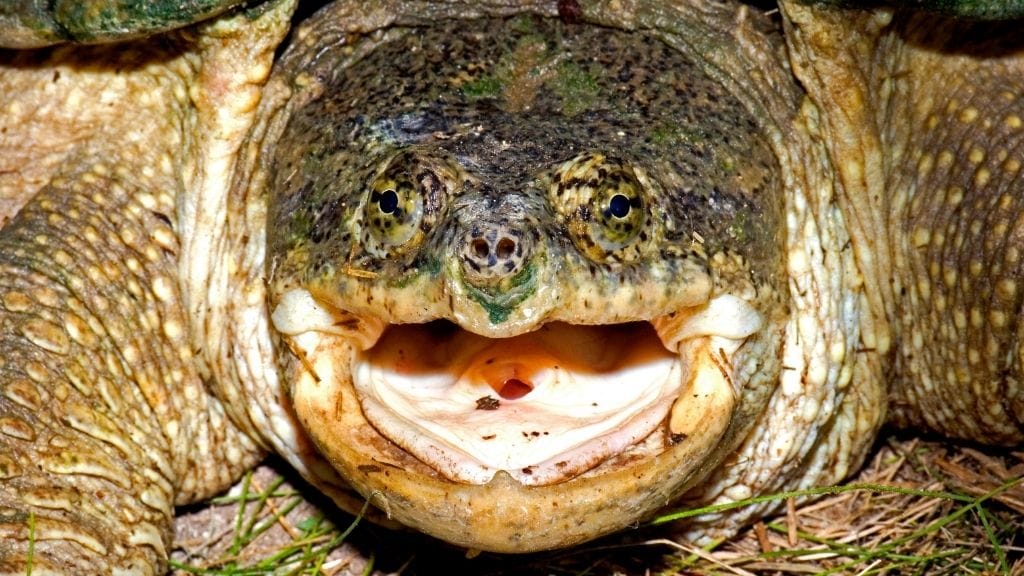
Snapping Turtle Mouth Open: Why?
Have you seen a snapping turtle keeping its mouth open? Does it indicate respiratory illness? Or is it normal behavior?
Snapping turtles are aggressive and always look for a scope to attack. Experts have observed the species behavior and concluded why they leave their mouths open. There are two possible answers to the question. Such as,
- If the snapping turtle sits underwater, leaving its mouth open, the creature might be hunting. Different studies suggest that snapping turtles have a unique preying technique. Here they attract the fish or potential food with their bright red tongue. The moment any fish comes near, these turtles will snap at them, piercing the flesh with the sharp jaws.
- If a snapping turtle opens its mouth on the land, it is scared and preparing for an attack. Snapping turtles feel vulnerable when not in water because of the exposed neck area. So, they stay alert all the time and snap at the potential danger. Snapping turtles have razor-sharp jaws and can bite off fingers from human hands.
However, an open mouth can be a sign of respiratory infection among snapping turtles. Look for the additional symptoms. Such as,
- Gasping for air
- Trouble breathing
- Open-mouth breathing
- Nasal discharge
- Puffy eyes
- Lethargy
- Weight loss, etc.
Conclusion
Turtles leave their mouths open for several reasons. Among them, snacking on food, hunger, yawning, etc., are the usual causes. However, gasping for air with symptoms like nasal discharge, puffy eyes, and fatigue indicates respiratory infection. If you doubt anything abnormal, consult the vet.

About Author
Muntaseer Rahman started keeping pet turtles back in 2013. He also owns the largest Turtle & Tortoise Facebook community in Bangladesh. These days he is mostly active on Facebook.


